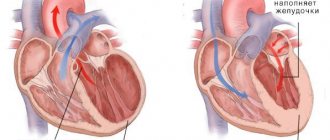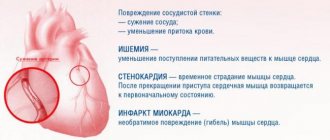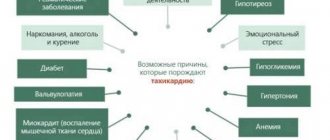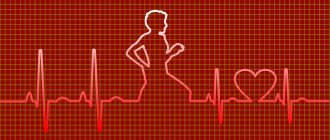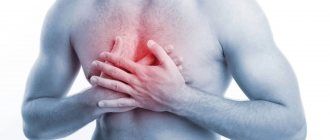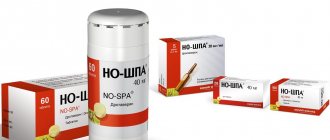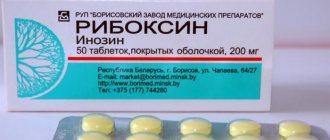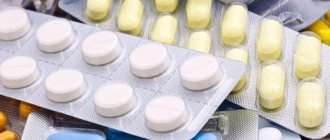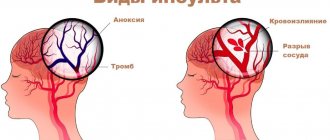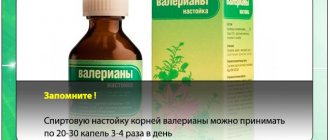Pharmacology and pharmacodynamics
As already mentioned, Validol has a sedative and vasodilator effect. Thanks to the influence of the active components, there is an improvement in peripheral blood circulation, pain and discomfort disappear, and a calming effect on the central nervous system is exerted. The drug is actively used for various diseases of the heart and blood vessels.
The active elements are very quickly absorbed in the oral cavity and after 3-5 minutes their highest content is noted in the general bloodstream. The effect of taking it can be observed within 5-7 minutes.
First aid for tachycardia
The normal heart rate (HR) for a healthy adult is 60–80 beats per minute. To calculate your heart rate, you need to place the index and middle fingers of one hand on the wrist of the other and count the pulse rate for 15 seconds, then multiply the resulting number by 4.
If the heartbeat exceeds 90 beats, tachycardia begins. However, not every attack requires calling a doctor. For example, physiological (natural) causes of increased heart rate go away on their own if the provoking factor is eliminated - reduce physical activity, stabilize the emotional state, quit smoking, etc.
Pathological variants of tachycardia begin for no apparent reason and are accompanied by symptoms of oxygen starvation, decreased blood pressure and a feeling of fear. This condition can stop on its own, but in some cases an attack of tachycardia occurs due to serious pathology (heart or respiratory failure, hypertensive crisis). And then the rhythm of the heart can only be adjusted in the hospital.
Disruption of the normal heart rate (HR) can lead to serious complications such as:
- heart attack;
- stroke;
- acute heart failure;
- thrombophlebitis;
- injuries resulting from fainting.
An attack of tachycardia for no apparent reason requires a visit to the doctor, even if the episode of increased heart rate goes away on its own
What to do during an attack of tachycardia
- 1
Take a horizontal position. This will take the load off the heart and blood vessels. - 2
Release the chest and neck - unfasten the buttons, loosen the collar, remove the tie. Tight clothing restricts breathing, so the pressure needs to be loosened. - 3
Place a pillow under your neck. Throwing back the head can cause circulatory problems, which is unacceptable in conditions of tachycardia. - 4
Provide fresh air flow. When the heart rate increases, the body experiences oxygen starvation, so an open window can alleviate the condition. - 5
Drink a glass of cold water in small sips. Hot drinks, coffee or strong tea are prohibited, and douse yourself with cold water. - 6
Cool your face - for example, place a towel soaked in cold water on your forehead and temple areas. - 7
Perform breathing exercises. A cycle of repeating slow, deep breaths, holding your breath for 5 to 8 seconds, and exhaling slowly can slow your heart rate. - 8
If signs of panic appear, you should take a sedative. - 9
If an attack of tachycardia does not occur for the first time, you should take antiarrhythmic drugs prescribed by your doctor.
For tachycardia at a young age, massage of the neck and back of the head is acceptable. This method is contraindicated for the elderly due to the high risk of heart attack and stroke.
When to call the doctor
If the tachycardia is caused by a serious heart pathology, the first aid measures described above may not be sufficient. If tachycardia does not go away within 15–20 minutes, especially while taking antiarrhythmic drugs, you should immediately call an ambulance.
Other reasons to call a doctor
- Heart rate is 120 beats per minute or higher.
- Intense pain behind the sternum, which is accompanied by pallor, sweating, fear of death and a burning sensation spreading to the left arm, lower jaw or abdomen.
- Tachycardia is accompanied by severe headache and a feeling of numbness in the limbs or half of the face.
- The attack occurred during pregnancy.
How to take Validol correctly
Before using the drug, you need to make sure that there are no contraindications and that allergies will not appear.
Capsules and tablets should be placed under the tongue and held until the medicine is completely absorbed. You can take 1 tablet or 1 capsule at a time. 3-4 doses per day are allowed. The maximum permissible dose per day is 12 capsules or 10 tablets. The duration of the treatment course should not exceed 10 days. If no result is observed after taking it, then you should consider taking other medications.
Tachycardia: causes and signs. How to treat?
Tachycardia, along with a heart attack, is considered the “heart” disease of our century. It can be primary if it is a manifestation of ischemia, heart defects and chronic lung diseases - bronchitis, bronchial asthma.
The rapid heart rate (more than 90 beats/minute), which characterizes this heart disease, can be a consequence of frequent stress, fear, anxiety, and even simple physical activity. In this case, tachycardia is considered secondary.
The type of tachycardia can be determined by echo monitoring , ECG, ultrasound of the heart and thyroid gland. If the test result is negative, tachycardia is secondary.
If there is a sharp increase in heart rate that lasts for 10-15 minutes, you must immediately take a sedative - valocordin, Corvalol with water or sugar, put glycine under the tongue, drink tincture of valerian, mint or lemon balm. It may also be helpful to place a damp cloth or cold cloth on your forehead or neck.
With anemia, tachycardia is also possible, since with low hemoglobin, the blood supply to the tissues decreases, and the heart begins to contract faster to compensate for the lack of oxygen in the tissues. For anemia, it is necessary to consume iron supplements and vitamin C.
How to quickly stop tachycardia? Tachycardia is considered a normal phenomenon in adolescents during a period of active growth, and is also not excluded at elevated body temperatures: 70-80 pulse beats per minute at temperatures up to 39 degrees is absolutely normal. At a temperature above 39 degrees, you need to take Coldrex or paracetamol to bring it down, since with an increased heartbeat the body quickly gets tired.
Secondary tachycardia can be pacified with a variety of herbal infusions. For its long-term treatment, you can prepare a decoction of lemon balm, mint and valerian, pour 2 tbsp. spoons of herbs 0.5 liters of boiling water for 5-10 minutes and take the infusion for 2-3 weeks.
To reduce the release of adrenaline, you can put half a tablet of mezapam or phenazepam under your tongue.
It is better to replace evening coffee or tea with soothing infusions of rosehip and motherwort, which lower blood pressure.
Doctors do not advise getting carried away with valerian: take no more than 1 tablet 3 times a day for 10 days. You don't need excessive sleepiness, do you? For people for whom sleeping at work is contraindicated, we can recommend 1 tablet of Grandaxin under the tongue 2 times a day.
Cardiovascular drugs such as mildronate, trental or teopeca, which stimulate blood flow, can cause tachycardia. Alcoholic drinks of any strength can also become tachycardia stimulants, along with unusual and spicy foods.
Your fiery engine cannot forever “take the rap” for your frivolous attitude towards health. Get a preventive examination from a cardiologist , take care of your heart, and it will serve you for many years.
Adverse reactions and overdose
Due to individual intolerance to the components, an allergic reaction may occur, manifested by a rash, itching or hives.
If you take the medicine in excessive doses over a long period, there may be a deterioration in the condition, accompanied by nausea, dizziness, and watery eyes. Such signs are not dangerous and disappear immediately as soon as the dose is reduced to an acceptable value. Or you can stop taking it for a while.
An overdose may lower blood pressure or increase the likelihood of unwanted reactions.
An overdose can enhance the good and bad effects of taking the drug. There may be deterioration in heart function, severe pain in the head, nausea followed by vomiting, agitation, and suppression of the functions of the central nervous system.
In this case, it is advisable to begin symptomatic therapy.
Cardiology in questions and answers
Today, cardiologist of the highest category Sergei CHAZOV answers readers’ questions
Check your cholesterol levels
In me (50 years old), echocardiography revealed the following changes: initial manifestations of aortic atherosclerosis, left ventricular hypertrophy, interventricular septum with foci of cardiosclerosis, disturbances in ventricular conduction, diffuse decrease in repolarization processes in the myocardium. My blood pressure is always normal - 120/80. Maybe these are age-related changes?
How serious are they? Is therapy needed?
N. Smirnova, Taganrog
I THINK that such changes may be associated with atherosclerotic changes in blood vessels. To clarify the degree of influence of such changes on the functions of the heart muscle, I would recommend ECG monitoring and (or) bicycle ergometry (VEM). These methods, by recording an ECG during everyday or increased stress, make it possible to identify signs of coronary heart disease (CHD) at an early stage, when a person does not yet experience pain. It makes sense to check the level of cholesterol and glucose in the blood, blood clotting indicators. But regardless of the examination result, the need for preventive courses of treatment in your case exists. I would recommend taking antioxidants (Aevit, Triovit) or drugs such as Mildronate, Preductal.
Herbal preparations are preferable
Hello! I am 33 years old. Lately, I almost constantly feel a rapid heartbeat, I want to inhale more air. Before going to bed (while lying down), there are interruptions and the pulse ranges from 80 to 113. Corvalol helps. Blood pressure is usually 100/60, but is often lower. There were similar problems before, but the cardiogram did not show anything special. I am currently planning a pregnancy and don’t know how I will save myself. You can’t take Corvalol and Valocordin, right?
Vera S. Sochi
WHEN PLANNING a pregnancy, you are absolutely right to pay attention to your health. Considering the complaints of palpitations, I would advise ECG monitoring to clarify the nature of such attacks. If changes are detected, you should contact a cardiologist for treatment. You can take Corvalol and Valocordin, but it is better to use herbal sedatives in the absence of real arrhythmia.
Why is it hard to breathe
My husband (27 years old) has been complaining of attacks of this kind for several days now: his heart hurts, it becomes difficult to breathe, but soon everything goes away on its own. What could it be?
Svetlana M. Tula
YOUR HUSBAND needs to be examined by a cardiologist and neurologist for the presence and/or exclusion of vegetative-vascular dystonia or even coronary heart disease.
Are there a lot of extrasystoles?
My wife has some extrasystoles in the amount of about 12,000 per day. Tell me, what is this and how dangerous is it?
Evgeniy S. Kaluga
EXTRASYSTOLES (ES) are extraordinary contractions of the heart. Normally, the heart does not work absolutely rhythmically; a small amount of ES is present in healthy people. But ES can also be a manifestation of heart disease or cause complications. I advise you to consult a cardiologist as soon as possible to clarify the causes of ES and treatment.
Or maybe it's osteochondrosis?
Hello, Doctor! I am 29 years old. For the last 6-7 years I have been experiencing sharp pain in the left side of my chest. The pain varies: sharply stabbing under the left breast or pulling from the shoulder to the chest. In any case, the pain is such that you have to lie down and wait for about five minutes. This happens periodically, infrequently. I can't find the reason.
Not related to physical activity.
Anton Pyryev, Chelyabinsk
The MOST common cause of such sensations is osteochondrosis of the thoracic spine, less often - diseases of the peripheral nerves (intercostal neuralgia), lungs, and pleura. To clarify the diagnosis, I recommend contacting a therapist and neurologist.
Pressure jumps
I am 26 years old. I have been suffering from sudden surges in blood pressure for 3 years now. Several times a day, the pressure increases for 5–10 minutes. then it subsides on its own. They did an ultrasound of the kidneys - everything was fine. Blood sugar is normal, blood is good. I had unbearable headaches during the races. At first they thought it was because of the back, but the x-ray showed nothing. Then they made a diagnosis - VSD of the hypertensive type. The cardiogram showed a pronounced change in the myocardium of the left ventricular wall. What is this? Is this serious? Is it possible to get rid of pressure surges? I am very afraid that I will have severe headaches again.
Sveta M. Krasnodar
In YOUR case, it makes sense to conduct an examination of the adrenal glands, since their damage often causes sudden surges in pressure, accompanied by a severe headache in combination with some other symptoms. To do this, you should contact an endocrinologist to perform an ultrasound or computed tomography scan of the adrenal glands and, possibly, determine the level of adrenal hormones in the urine.
You may cause a seizure
My father, a surgeon with 40 years of experience (he is 78 years old), has recently often suffered from attacks of atrial fibrillation. At the same time, it seems to him that the attacks begin after eating. He has been practically starving for the last two weeks, he is simply afraid to eat. Can food in the smallest amount provoke an attack? It seems to me that his condition is caused by neurotic reasons. What do you recommend?
A. Bukin, Chita
ATTACKS of atrial fibrillation (AF) can occur after eating, especially when overeating. In such cases, it is recommended to eat 4-6 times a day in small portions. Of course, there may be neurotic reasons, but I think that only sedatives will be ineffective in your case. I would advise you to consult a cardiologist or arrhythmologist at a regional cardiac center to clarify the possibility of surgical treatment of paroxysms of atrial fibrillation.
Consultation required
Very strange pains began in the chest area on the left: they radiate to the left arm. Sometimes it feels like something inside is bothering you, something is aching. It is impossible to lie on the stomach and on the left side, it is difficult to breathe. I was told that this happens with neuralgia, but I definitely feel that the heart rhythm is off. I am contacting you because I am currently in Central Asia, and it is difficult to find a qualified doctor here.
A. S. Samarkand
REALLY, similar sensations occur with osteochondrosis of the spine, intercostal neuralgia. An arrhythmic variant of coronary heart disease is also not excluded. An examination is necessary to more accurately determine the diagnosis. To do this, I advise you to contact a cardiologist and neurologist, who will conduct the necessary tests and prescribe treatment.
Dressler syndrome
My husband (48 years old) has a pre-infarction condition and is in the hospital. A friend who had this diagnosis says that he needs to rule out the Dreisler effect. What it is?
A. Korneva, Orel
APPEARANTLY, we are talking about the so-called. Dressler's syndrome. This syndrome is a kind of allergic reaction of the body to the development of necrosis (death) of a section of the heart muscle. In mild cases, signs of this condition are revealed only by examining a general blood test; in more severe cases, prolonged rises in temperature and the development of inflammation of the pericardium (around the heart) or pleura are possible.
Not harmful
Can you take Corvalol, validol, valerian as sedatives if your heart is still healthy? Isn't this harmful?
I. B-va, Novosibirsk
NO, it's not harmful. Corvalol, validol and valerian can be taken even in the absence of heart disease.
Natalia VOLODINA
special instructions
Shelf life – 24-36 months (depending on the manufacturer). It should be stored in a dark place at a temperature of 9-16 degrees.
It is not recommended to take the drug in parallel with alcoholic beverages, since alcohol can have a suppressive effect on the central nervous system, which can lead to more severe adverse reactions.
If you use Validol together with psychotropic drugs, the effectiveness of the latter will increase.
After taking it, you should stop driving for a while.
conclusions
Tachycardia is one of the most common heart rhythm disorders. It is a normal response to the activation of the sympathetic nervous system and the release of adrenaline. At the same time, this is a common symptom of psychosomatic diseases such as vegetative-vascular dystonia and neurasthenia. This condition often occurs during pregnancy.
“Validol” for common palpitations is the most popular remedy due to its cheapness and the absence of side effects and serious contraindications. However, doctors often doubt its effectiveness. In any case, before taking any drug, you should consult a doctor, because only he can really determine the need for a specific prescription.
Analogs
If the patient cannot take Validol, he may consider taking analogues.
These include:
Kratal. It is considered an expensive drug. It has an antioxidant, cardiotonic and antihypoxic effect.
Tonginal. It is also an expensive analogue. It has a complex homeopathic effect.
Pumpan. Available in the form of solution and tablets. Has metabolic, cardiotonic effects. Helps normalize heart rhythm and maintain normal blood pressure.
Instenon. The action of the drug is aimed at stabilizing blood circulation in the brain and improving brain metabolism.
What effect does the drug have?
“Validol” is one of the most common drugs in our country, which is used not only for palpitations, but also for other arrhythmias, as well as for the relief of angina pectoris, headaches while taking “Nitroglycerin”, as a sedative for neurasthenia, vegetative-vascular dystonia and even with insect bites.
Actually, “Validol” is a trade name. The active ingredient is menthol dissolved in isovaleric acid methyl ester.
"Validol" belongs to the group of reflex vasodilators. The molecules of the substance, when they enter special chemical receptors in the oral mucosa, have a stimulating effect. As a result, the processes of synthesis of so-called “pleasure hormones” – endorphins, dynorphins, enkephalins – are activated in the brain. They have a calming effect on the nervous system, thereby reducing pulse and blood pressure.
Also, under the influence of the irritating effect of Validol, other biologically active substances are released, for example, histamine and kinins. One of their main effects is vasodilation, which helps relieve angina attacks.
"Validol" is absorbed under the tongue (sublingually), so its effect begins within a few minutes. For adults, a single dose is 1-2 tablets; you can take 4 tablets per day. and more. If a therapeutic effect is not observed, it is necessary to choose another drug.
EXTRASYSTOLES
Extrasystoles are a type of heart rhythm disturbance (see Arrhythmias), in which extraordinary premature single or repeated contractions of the heart occur.
Causes. Extrasystoles arise due to the generation of impulses outside their usual source (sinus node). This can occur with various myocardial diseases: myocarditis, coronary heart disease. acute myocardial infarction. cardiomyopathies. toxic damage to the heart (for example, due to alcohol abuse), etc. In addition, extrasystoles often occur during emotional stress, fatigue, and in other cases, being a manifestation of neuro-circulatory dystonia. cardialgia. Extrasystole can appear with diseases of the abdominal organs: with exacerbation of cholecystitis, stomach diseases, with overeating.
Kinds. Extrasystoles are distinguished according to the place of origin of the extraordinary impulse: atrial, ventricular and from the atrioventricular junction. There are rare (less than 5 in 1 minute) and frequent, single and group (several extrasystoles in a row) extrasystoles.
Symptoms Sometimes extrasystoles are not subjectively perceived by a person. Usually, extrasystoles are manifested by a feeling of interruptions in the work of the heart, “failures,” “fading,” and unpleasant pulsation. When counting the pulse rate, its irregularity with the appearance of long intervals is revealed. Extrasystole can occur during physical exertion (more often with myocardial diseases), with a rise in blood pressure or, conversely, at rest (usually not associated with heart damage).
The prognosis of extrasystole is determined by the underlying disease that caused the extrasystole. In neurocirculatory dystonia and many cardialgia, extrasystoles do not pose a threat to health, especially if they are rare. In case of coronary heart disease, especially acute myocardial infarction, extrasystoles may indicate oxygen starvation of the heart muscle and require urgent measures. Frequent and group extrasystoles are especially dangerous. In any case, only a doctor can determine the cause of extrasystole and prescribe treatment.
Diagnosis of extrasystoles is carried out using electrocardiography. and echocardiography and other methods help to establish the cause of extrasystoles. Sometimes Holter monitoring is used - a multi-hour recording of an electrocardiogram using a recording device constantly worn by the patient.
Treatment is carried out by a doctor. You can independently use sedatives (valerian, motherwort), Corvalol - 15-20 drops (Valocordin), Validol (1 tablet on the tongue), Votchal drops (10-20 drops), Panangin - 1 tablet.
Prevention comes down to treating the underlying disease.
